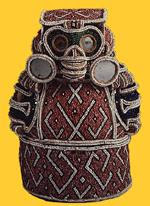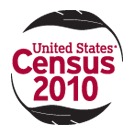The government of Puerto Rico has introduced a policy that stands to leave millions of island and stateside Puerto Ricans without a valid identity document. This appears to be a poorly developed policy that Puerto Rico Governor Luis Fortuño must revise.
The policy, scheduled to take effect July 1 of this year, invalidates all birth certificates issued in Puerto Rico. It also bans the submission of original birth certificates to public or private entities within the jurisdiction of Puerto Rico. The new birth certificate is $5, a cost that would be waived for veterans and people 60 and older.
The new policy, as Puerto Rico’s Secretary of State Kenneth McClintock told El Diario-La Prensa recently, is aimed at curbing an underground market for Puerto Rican birth certificates among undocumented immigrants. McClintock said the policy was prompted by a federal government report highlighting an alarming rate of fraud using Puerto Rican birth certificates--supposedly 40 percent of identity theft cases.
This, it turns, is not the case. Long Island University Professor Jose Ramon Sanchez cites the Federal Trade Commission in highlighting that in the United States, the total number of identity fraud cases in any year is 10 million. The Puerto Rico-originated cases of fraud initially cited by McClintock were specifically passport fraud cases, out of a small pool of 8,000 cases. So the Puerto Rican cases represent only 0.00032 percent of identity theft, according to Sanchez’s analysis.
Both the Puerto Rican government and the Department of Homeland Security (DHS) have said the problem is that different island institutions have requested the submission of original certificates and that poor storage puts and theft put these documents at risk.
This makes the ban on submitting multiple couples of an original birth certificate sensible. But voiding all certificates, even for Puerto Ricans born on the island but raised their entire lives in states, seems to be an exaggerated reaction. We are still waiting for numbers from DHS on the question of how many times a Puerto Rican certificate has been used to illegally cross a U.S. border.
Puerto Rican officials have not explained how a new “enhanced” birth certificate would work and whether it is proven to prevent fraud, nor have they offered the name of the company that would handle this work and what the selection process entailed.
Yet another issue is how an administration that barely has a stateside infrastructure to reach millions of Puerto Ricans and that has severely cut its own governmental workforce would handle information dissemination and the processing of requests. Puerto Ricans could be affected by a voided certificate or a delay, if they rely on benefits that require it, for example.
McClintock has said the Puerto Rico should not get a deluge of requests because most people use a passport or driver’s license for identification.
This is an assumption. And it is a denial of reality as well: most people would want to have an original birth certificate when the document they currently possess is invalidated. McClintock’s response also reflects the government’s out-of-touch attitude. When people in both Puerto Rico and the continental United States are counting their pennies at supermarkets, $5 is an unfair burden. Congressman José Serrano and Latino Justice PRLDEF are among the leaders and organizations that have raised concerns about this policy.
All of this brings us to two fundamental questions: who really benefits from this policy and how well was it thought out?
The prevention of identity theft is most certainly important. But the government of Puerto Rico has a responsibility to retract its messy policy until further independent study is conducted and until there is transparency around the conversations and numbers used to justify its decision.
Source: El Diario la Prensa NY
The policy, scheduled to take effect July 1 of this year, invalidates all birth certificates issued in Puerto Rico. It also bans the submission of original birth certificates to public or private entities within the jurisdiction of Puerto Rico. The new birth certificate is $5, a cost that would be waived for veterans and people 60 and older.
The new policy, as Puerto Rico’s Secretary of State Kenneth McClintock told El Diario-La Prensa recently, is aimed at curbing an underground market for Puerto Rican birth certificates among undocumented immigrants. McClintock said the policy was prompted by a federal government report highlighting an alarming rate of fraud using Puerto Rican birth certificates--supposedly 40 percent of identity theft cases.
This, it turns, is not the case. Long Island University Professor Jose Ramon Sanchez cites the Federal Trade Commission in highlighting that in the United States, the total number of identity fraud cases in any year is 10 million. The Puerto Rico-originated cases of fraud initially cited by McClintock were specifically passport fraud cases, out of a small pool of 8,000 cases. So the Puerto Rican cases represent only 0.00032 percent of identity theft, according to Sanchez’s analysis.
Both the Puerto Rican government and the Department of Homeland Security (DHS) have said the problem is that different island institutions have requested the submission of original certificates and that poor storage puts and theft put these documents at risk.
This makes the ban on submitting multiple couples of an original birth certificate sensible. But voiding all certificates, even for Puerto Ricans born on the island but raised their entire lives in states, seems to be an exaggerated reaction. We are still waiting for numbers from DHS on the question of how many times a Puerto Rican certificate has been used to illegally cross a U.S. border.
Puerto Rican officials have not explained how a new “enhanced” birth certificate would work and whether it is proven to prevent fraud, nor have they offered the name of the company that would handle this work and what the selection process entailed.
Yet another issue is how an administration that barely has a stateside infrastructure to reach millions of Puerto Ricans and that has severely cut its own governmental workforce would handle information dissemination and the processing of requests. Puerto Ricans could be affected by a voided certificate or a delay, if they rely on benefits that require it, for example.
McClintock has said the Puerto Rico should not get a deluge of requests because most people use a passport or driver’s license for identification.
This is an assumption. And it is a denial of reality as well: most people would want to have an original birth certificate when the document they currently possess is invalidated. McClintock’s response also reflects the government’s out-of-touch attitude. When people in both Puerto Rico and the continental United States are counting their pennies at supermarkets, $5 is an unfair burden. Congressman José Serrano and Latino Justice PRLDEF are among the leaders and organizations that have raised concerns about this policy.
All of this brings us to two fundamental questions: who really benefits from this policy and how well was it thought out?
The prevention of identity theft is most certainly important. But the government of Puerto Rico has a responsibility to retract its messy policy until further independent study is conducted and until there is transparency around the conversations and numbers used to justify its decision.
Source: El Diario la Prensa NY













